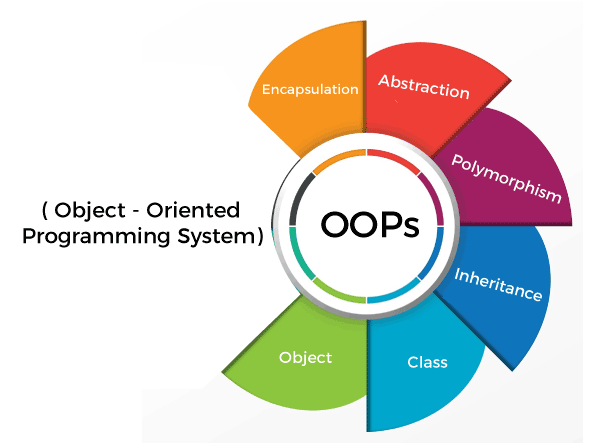Object-Oriented Programming for Beginners: A Guide to Code Organization and Re usability
Unleash the Power of Object-Oriented Programming: A Beginner's Guide to Efficient Code Structure and Re usability

Everyone who starts their programming journey must have came across this term "Object Oriented Programming", But what exactly it is?
Let me explain in layman's terms.
Object-Oriented Programming is like organizing and playing with toys. We use special boxes called "classes" to group similar toys. Each class is like a set of instructions to make things. We can create objects from these classes, which are like the actual toys we can play with. Objects have their unique features and can do different things. It helps us organize code and make it easier to work with.
Classes and Objects
#include <iostream>
using namespace std;
// Example class
class Car {
public:
string brand;
string model;
int year;
};
int main() {
// Creating objects from the Car class
Car car1;
car1.brand = "Toyota";
car1.model = "Corolla";
car1.year = 2021;
Car car2;
car2.brand = "Honda";
car2.model = "Civic";
car2.year = 2022;
// Accessing object properties
cout << "Car 1: " << car1.brand << " " << car1.model << " " << car1.year << endl;
cout << "Car 2: " << car2.brand << " " << car2.model << " " << car2.year << endl;
return 0;
}
In the example above "Car" is a class and it serves as a blueprint for creating car objects. which further have different properties.
By using classes, we can create multiple objects with similar properties and behaviors. Each object is independent and can be accessed and manipulated separately.
So, in summary, a class in OOP is like a blueprint or a template that defines the properties and behaviors of objects. Objects are instances of a class, representing real entities with their unique characteristics.
Encapsulation
Encapsulation in Object-Oriented Programming is like keeping your favorite toys in a special box with a lock. The lock ensures that only you can access and play with the toys inside, keeping them safe and protected. Similarly, in OOP, encapsulation helps keep important information and behaviors hidden and only allows access through specific methods, ensuring data security and proper usage.
For learning more click here!
Abstraction
Abstraction in Object-Oriented Programming is like using a remote control to watch TV. You don't need to know how the TV works inside; you can just press the buttons on the remote to change channels or adjust the volume. Abstraction allows us to focus on using objects without worrying about the complicated details of how they are built or work internally. It helps us simplify things and use objects easily, like using a remote control to operate a TV without knowing how it works.
For learning more click here!
Polymorphism
Polymorphism in Object-Oriented Programming is like having different toys that can do different things when you play with them. For example, a toy car can go forward and backward, while a toy plane can fly in the air. Polymorphism allows objects to have different behaviors or abilities, even if they belong to the same group. It's like having toys that can do different fun things when you play with them.
To learn more click here!
Inheritance
Inheritance in Object-Oriented Programming is like borrowing special powers from someone in your family. Let's say your older sibling can ride a bicycle, and because of inheritance, you can also ride that bicycle. In programming, we can create a new object that "inherits" properties and behaviors from an existing object. It's like getting special abilities or knowledge from someone in your family.
To learn more click here!
Well, I hope you gained some knowledge from this.
In the magical world of programming, you have the power to create your universe of objects. Just like organizing your toys and borrowing their superpowers, you can use encapsulation to keep secrets, abstraction to simplify the complex, polymorphism to unleash endless possibilities, and inheritance to inherit the coolest traits. So, grab your coding wand, embrace the quirks and wonders of Object-Oriented Programming, and let your imagination soar! Remember, in the realm of code, you are the mighty architect of digital wonders. Happy coding, young wizard!
That's a wrap! :)
If you liked the blog drop a sub and feedback and I'll see you super soon in your inbox tomorrow, until then keep the hustle on!